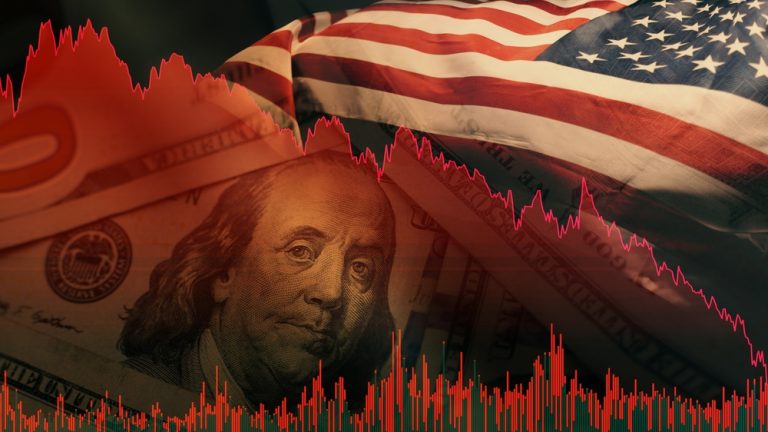Market Panic Follows Trump’s Tariffs Announcement
Following President Donald Trump’s sweeping tariffs announcement, markets have been in turmoil, leading to what some executives are calling a “Trump recession.” According to a flash survey conducted by CNBC, a majority of CEOs predict that the U.S. economy will experience a recession, with many expecting it to occur this year. The survey reflects the deep concerns within the business community, triggered by Trump’s trade policies and the uncertainty they create.
Trade War Fears: Recession and Job Losses Expected
With a 10% drop in the S&P 500 and a subsequent global market downturn, executives from major companies are bracing for economic consequences. Over 69% of CEOs surveyed by CNBC anticipate a recession, with some even suggesting that job cuts will be inevitable. According to JPMorgan Chase CEO Jamie Dimon, the odds of a recession have increased to 60%, while Larry Fink of BlackRock believes the U.S. might already be in a recession.
Price Increases and Inflation Concerns
CEOs also expect significant price hikes as a result of the tariffs, with nearly all of them predicting increases between 5% and 20%. The tariffs are seen as a catalyst for inflation, particularly in industries relying on imported goods. With rising costs, many executives are concerned about the negative impact on consumer spending, which could further slow the economy. A CEO from the survey pointed out that the loss of market value would likely diminish the wealth effect, especially for the key demographic of 40-60 year-olds.
Global Backlash and Boycott Fears
Concerns are also rising about a potential global backlash against U.S. brands, with some CEOs fearing that anti-American sentiment could lead to boycotts. The impact of tariffs is expected to be especially felt by companies with significant international sales, as they may face challenges in foreign markets. One CEO from the survey expressed worry about the implications for American brands globally, adding that there is a real risk of increased stagflation.
Long-Term Impact of Tariffs: Uncertainty for Business
The uncertainty created by the tariffs has led to a major slowdown in corporate investments. Many CEOs indicated that they have paused plans for new projects, with nearly 45% stating that any reshoring would take at least two to three years. A CEO from the construction sector noted that the tariffs on building materials would likely delay capital projects, further exacerbating economic stagnation.
Mixed Opinions on the Long-Term Impact
While some CEOs still believe the long-term benefits of reshoring and trade policy reforms could outweigh the immediate damage, most executives are pessimistic. Nearly 59% of CEOs surveyed disagreed with the view that the tariffs would ultimately be successful. The mix of uncertainty and economic pessimism is leading many to question whether the U.S. will be able to recover from the disruptions caused by the tariffs.
A Self-Fulfilling Recession?
Experts like former St. Louis Federal Reserve Bank President James Bullard suggest that the uncertainty surrounding the tariffs could be a self-fulfilling prophecy, delaying investments and major projects globally. As corporate leaders express frustration and caution, the outlook for the U.S. economy remains grim. With widespread pessimism about the effectiveness of the tariffs, the future of the economy is uncertain, leaving businesses and consumers alike in a state of apprehension.


